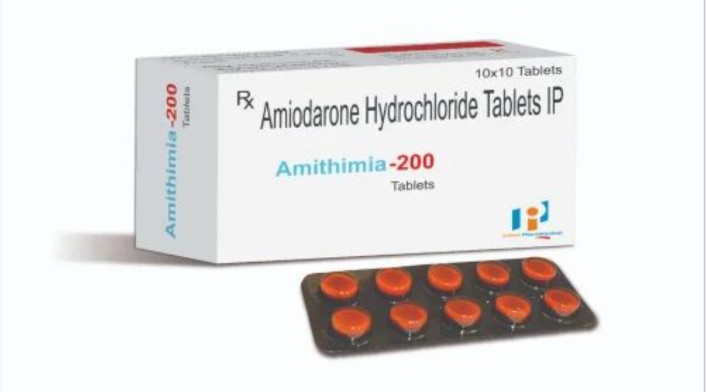

Amodiaquine Medicine: Description
Amodiaquine is an antimalarial drug belonging to the 4-aminoquinoline class. It is widely used in the treatment and prevention of malaria, particularly in areas where chloroquine resistance is prevalent. Amodiaquine is often combined with other antimalarials, such as Artesunate, to increase its efficacy and reduce resistance.
8 Uses of Amodiaquine
- Treatment of Acute Uncomplicated Malaria: Primarily used to treat Plasmodium falciparum infections.
- Malaria Prophylaxis: Used for prevention in areas where malaria is endemic.
- Combination Therapy: Commonly combined with Artesunate for increased effectiveness.
- Seasonal Malaria Chemoprevention (SMC): Used for children in malaria-endemic regions to prevent seasonal outbreaks.
- Post-Treatment Prophylaxis: Helps prevent recurrence after the initial treatment.
- Treatment of Drug-Resistant Malaria: Effective against some strains of chloroquine-resistant Plasmodium falciparum.
- Pregnancy: Under medical supervision, Amodiaquine may be used in treating malaria during pregnancy.
- Use in Severe Malaria Cases: Sometimes prescribed for severe cases when other treatments are unavailable or ineffective.
Dosage
- Adults: Typically, 10 mg/kg body weight daily for 3 days.
- Children: Dosage is adjusted based on body weight, similar to the adult dose.
- Combination Therapy: When combined with Artesunate, the dosage may differ; always follow professional medical guidance.
Always adhere to prescribed dosages based on health conditions and regional guidelines.
8 Side Effects of Amodiaquine
- Nausea and Vomiting
- Dizziness
- Headache
- Abdominal Pain
- Hepatotoxicity (Liver Damage)
- Pruritus (Itching)
- Agranulocytosis (Reduction in White Blood Cells)
- Anemia or Blood Disorders
10 Brand Names, Company, and Price (India/US)
maforce:- Manforce 100mg: Uses, Dosage, Side Effects, and Contraindications
India:
- Brand Name: Camoquine (Ipca Laboratories)
- Price: ₹20-₹50 per tablet strip
- Brand Name: Larcam (Sanofi India Ltd.)
- Price: ₹30-₹60 per tablet strip
- Brand Name: Falcitab AQ (Emcure Pharmaceuticals)
- Price: ₹40-₹70 per tablet strip
- Brand Name: Amovate (Intas Pharmaceuticals)
- Price: ₹25-₹55 per strip
- Brand Name: Molnupiravir AQ (Zydus Cadila)
- Price: ₹35-₹70 per strip
US:
- Brand Name: Flavoquine (Less commonly available in the US due to limited usage)
- Price: $5-$10 per tablet (subject to availability)
- Brand Name: N/A (Amodiaquine is typically available as part of combination therapies in the US for global health programs)
- Brand Name: Malariv AQ (US Import)
- Price: $8-$12 per tablet
- Brand Name: Serometa AQ (Global Generic)
- Price: $7-$15 per tablet
- Brand Name: Axoquine (Specialized International Shipment)
- Price: $6-$12 per tablet
Mechanism of Action
Amodiaquine works by interfering with the parasite’s ability to detoxify heme, a toxic byproduct of hemoglobin digestion. This disrupts the replication of malaria-causing parasites, leading to their death. Amodiaquine is effective against the asexual blood stages of Plasmodium falciparum.
Contraindications
- Hypersensitivity to Amodiaquine or other 4-aminoquinoline drugs.
- History of liver disease, including hepatitis.
- Blood disorders like agranulocytosis or aplastic anemia.
- Severe renal impairment.
- Concurrent use with other hepatotoxic drugs.
Drug Interactions
- Antimalarials: Increased risk of adverse effects when combined with drugs like quinine.
- Hepatotoxic Drugs: Enhanced risk of liver damage when used with other hepatotoxic medications (e.g., acetaminophen).
- CYP450 Enzyme Inhibitors: May interfere with the metabolism of Amodiaquine, leading to increased toxicity.
- Warfarin: Increased risk of bleeding when combined with anticoagulants.
- Antacids: Aluminum-containing antacids may reduce the absorption of Amodiaquine.
Precautions
- Liver Function Monitoring: Patients should undergo regular liver function tests due to the risk of hepatotoxicity.
- Pregnancy and Breastfeeding: Should be used under strict medical supervision during pregnancy.
- Pediatric Use: Ensure proper weight-based dosing for children to avoid toxicity.
- Photosensitivity: Patients should avoid excessive sun exposure, as Amodiaquine can increase photosensitivity.
- Alcohol: Avoid alcohol, as it can enhance the hepatotoxic effects of Amodiaquine.
Patient Counseling Information
- Complete Treatment: Ensure the patient completes the full course of medication, even if symptoms subside early.
- Side Effects: Patients should be informed of possible side effects, especially liver issues and dizziness, and encouraged to report severe symptoms.
- Avoid Self-Medication: Patients must follow the exact dosage and should not self-medicate.
- Storage: Store Amodiaquine in a cool, dry place and ensure unused or expired medications are disposed of properly.
- Routine Monitoring: Advise regular blood and liver function tests during prolonged treatment.
Conclusion
Amodiaquine is a critical drug in malaria treatment, especially in areas with chloroquine-resistant strains. While effective, it has notable side effects that require careful monitoring, particularly for liver toxicity and blood disorders. Its combination with other antimalarials, like Artesunate, has enhanced its utility in modern malaria treatment regimens. Always use under medical supervision with regular follow-ups.
References
- World Health Organization (WHO)
- Centers for Disease Control and Prevention (CDC)
- National Institute of Health (NIH)
- Manufacturer Websites: Ipca Laboratories, Sanofi India, Emcure Pharmaceuticals, Intas Pharmaceuticals
other page –https://www.wikimedia.org/






